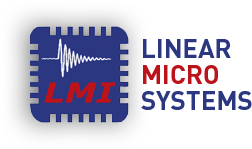The Role of RF ASICs in Automotive Radar Systems
In the dynamic landscape of automotive technology, the integration of advanced radar systems has become paramount for ensuring safety and enabling cutting-edge features. Among the crucial components driving the efficiency of automotive radar systems are Radio Frequency Application-Specific Integrated Circuits (RF ASICs). This article delves into the significance of RF ASICs in automotive radar systems, highlighting their key roles and impact on the evolution of vehicular safety and autonomy.
Precision and Performance Enhancement with RF ASIC
At the heart of any automotive radar system lies the need for precision and performance. RF ASICs play a pivotal role in achieving these objectives by providing a tailored solution for the specific demands of radar applications. Unlike generic integrated circuits, RF ASICs are designed to operate efficiently at radio frequencies, optimizing the system’s overall performance. This specialization ensures that automotive radar systems can operate with enhanced accuracy and reliability, crucial factors for applications such as adaptive cruise control, collision avoidance, and autonomous driving.
RF ASICs are engineered to handle the intricate signal processing requirements of radar systems, including modulation, demodulation, and frequency filtering. Their integration empowers automotive radar systems to operate seamlessly in complex environments, where precise detection and differentiation of objects are vital for ensuring the safety of passengers and pedestrians. The precision of RF ASICs contributes to the overall efficacy of radar-based features. This makes them indispensable in the pursuit of safer and more advanced vehicular technologies.
Size, Power, and Cost Efficiency in Automotive Radar Systems
In the automotive industry, where space, power, and cost considerations are paramount, RF ASICs offer a compelling advantage. These specialized circuits are designed to be compact, energy-efficient, and cost-effective, aligning with the stringent requirements of modern vehicle designs. The miniaturization of RF ASICs allows for their seamless integration into the limited space available in automobiles without compromising performance.
Moreover, the energy-efficient nature of RF ASICs is crucial for minimizing the power consumption of automotive radar systems. This is particularly significant as vehicle manufacturers strive to develop eco-friendly and electric vehicles. The reduced power requirements contribute to the sustainability of the automotive industry. They also extend the operational life of the radar system, providing a reliable and durable solution.
RF ASIC Conclusion
RF ASICs emerge as key enablers, driving the capabilities of radar systems to new heights. The precision, performance enhancement, and efficiency brought about by RF ASICs contribute significantly to the safety and advancement of automotive radar applications. As the automotive industry continues to embrace technological innovations, the role of RF ASICs will remain instrumental in shaping the future of vehicular safety, autonomy, and the overall driving experience. By leveraging the unique advantages of RF ASICs, automotive companies can navigate the road ahead with confidence. This will aid in delivering vehicles that are smarter and safer for everyone.
Looking to learn more about the microsystems industry? Click here to learn more about Linear MicroSystems!
Linear MicroSystems, Inc. is proud to offer its services worldwide as well as the surrounding areas and cities around our Headquarters in Irvine, CA: Mission Viejo, Laguna Niguel, Huntington Beach, Santa Ana, Fountain Valley, Anaheim, Orange County, Fullerton, and Los Angeles.






